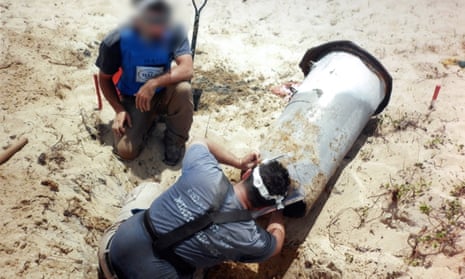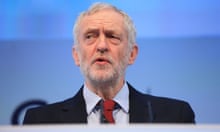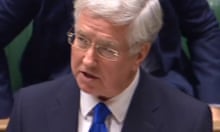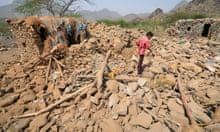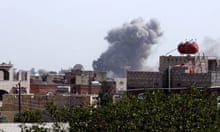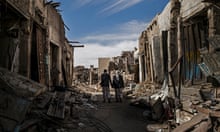Britain exported hundreds of cluster bombs to Saudi Arabia in the late 1980s, official figures show.
The defence secretary, Sir Michael Fallon, said 500 cluster munitions were delivered to Saudi Arabia from the UK between 1986 and 1989.
This is the first time the Ministry of Defence has said how many of the devices were exported to Saudi Arabia since it emerged last month that a “limited number” had been used by Saudi-led forces in the current war in Yemen.
The UK has faced accusations of war crimes and calls to suspend arms sales to Saudi Arabia over the use of the weapons, which were banned in 2010 under an international treaty signed by Britain.
Last month, Fallon said he was satisfied that use of the bombs had not breached international law, and he had asked the Saudis to destroy their remaining stock of UK-supplied cluster munitions. He was unable to tell the Commons how many had been exported in the first place.
However, in a letter to the Conservative MP Philip Hollobone, Fallon confirmed: “The UK delivered 500 BL755 cluster munitions under a government-to-government agreement signed in 1986. The final delivery was made in 1989.”
He also wrote that the UK, which backed the Oslo convention that withdrew support for cluster munitions, had not been able to carry out any surveillance of the weapons since 2008.
The prime minister of Yemen’s rebel Houthi government has accused the UK of war crimes for supplying arms to the coalition, which is conducting military operations to restore the regime overthrown last year.
Cluster bombs are designed to release dozens of smaller bombs over a wide area, but the smaller munitions do not always explode, posing a future risk to civilians.
Amnesty International has previously accused the UK prime minister, Theresa May, of burying her head in the sand over the issue, given the “clear risk that UK weapons could be used to commit breaches of international humanitarian law in Yemen”.
